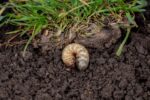Brown recluse spiders in South Florida Make Annual inspections A Must
Whether you think spiders are cool or dread the sight of them, you want to know the answer to questions like “are brown recluses in Florida?” and other queries about this feared venomous spider.
Recluse spiders like the brown recluse spider are, as their name suggests, known for being reclusive. They are nocturnal and like to stay hidden. They tend to avoid contact with humans unless they feel threatened. They are not a spider you want to encounter. If you see one, it’s best to leave it alone and call a professional to get rid of it.
Brown recluse spiders eat other bugs, such as cockroaches and crickets. Male brown recluse spiders wander farther than females and crawl into shoes or other clothing. Brown recluse spiders often live outdoors in debris and woodpiles. You can find them indoors in storage areas, attics, and other dark recesses.
Brown recluse spiders are bigger than the everyday spiders you’re used to seeing. Their bodies typically fall between a quarter-inch and three-quarters of an inch in size. Their long legs also contribute to their size. They are most commonly light to medium brown but can range in color. Blackish gray, dark brown, and white coloring are also common. Unlike most spiders, they have six eyes instead of eight. These spiders have a characteristic dark brown violin marking on their back, which is why some people refer to them as fiddle-back spiders, in addition to Brown Recluse.
Brown recluse spiders are known by many names, which take a cue from their distinctive marking: violin spider, brown fiddler, and fiddleback spider. Whatever you call them, they’re a formidable pest that most of us don’t want anywhere near our homes.
When it comes to the brown recluse spider, Florida residents have lots of questions. Let the brown recluse spider & pest control experts at Hulett fill you in on the answers to:
- Do brown recluses bite?
- Are there brown recluse in Florida?
- Are they poisonous or venomous?
Is the Brown Recluse Spider Dangerous & Do They Bite?
Yes, brown recluse spiders do bite, and for some people, their bites are dangerous. When this spider bites you, you may not even feel it initially. When bite victims do feel it, they compare the pain to the prick of a needle or a bee sting. The brown recluse bite typically leaves two red puncture marks caused by the spider’s fangs. After four to eight hours, the sting may hurt more. Sometimes a bruise or blister may form. The surrounding area can turn bluish-purple and then turn brown or black.
In the first 24 to 48 hours, you may notice the following symptoms:
- An ulcer or open sore where the bite occurred
- Pain or redness at the site of the bite
- Necrotic skin lesions
- Weakness
- Restlessness
- Joint pain
- Fever
- Nausea
- Chills
- Coma or seizures (rare)
There is no documented evidence of deaths from brown recluse spider bites. Although rare, their bite can damage tissue.
Many adults successfully treat a bite at home, but around 10% of the bites damage the skin so severely that medical treatment is necessary. Smaller children need treatment from a medical professional immediately, sometimes elderly too. Their bodies are not as capable of combatting the dangerous effects of the venom.
When treating brown recluse spider bites, doctors verify that they have correctly identified the insect responsible for the bite. They often ask patients to provide a photo or verbal description of the spider. It can be challenging to diagnose because the signs of bacterial infections, allergic reactions to medications, and chemical burns can resemble necrotic lesions from a brown recluse spider bite.
Like the black widow spider, these insects are not interested in biting humans unless they feel threatened, and their fangs typically cannot break through clothing to pierce the skin. When they bite humans, it’s usually because they are directly pressed against the skin. The most common way they bite humans is when they hide in clothing that someone later puts on. A spider may nestle inside a pair of work gloves or a pair of jeans tossed on the floor, and when someone puts on the infested piece of clothing, the spider bites as it’s pressed against their skin.
Is the Brown Recluse Spider Poisonous?
Poisonous is a term used for when there is a reaction after eating or touching something that is toxic. Since the reaction caused by spider is when they bite, this is referred to as being venomous. The Brown Recluse is highly venomous, and they may be the most venomous of the house spiders in the country. However, their bite delivers such a small quantity of venom that it does not significantly harm most people. Their venom is comprised of a collection of enzymes that causes blood cells to rupture in a process called hemolysis. When the cell’s walls rupture, its hemoglobin, a red protein that bears oxygen, leaks out.
Are Brown Recluse Spiders Common in South Florida?
It’s unlikely that you’ll find breeding populations in a native habitat in South Florida. They are not native to South Florida, and they typically find their way here on transported plant material or firewood, or other packaged goods during transportation or moving. They usually inhabit vehicles or buildings in South Florida. However, although unlikely, it does occur.
Sighting these reclusive spiders is exciting for people, and it’s common for people to think they’ve seen a brown recluse spider when they haven’t. They’re easily mistaken for several other species of spiders with similar characteristics — the southern house spider or wolf spider, for example. If you see what you think might be a brown recluse spider, it’s not a bad idea to err on the side of caution and proceed as though it is one of these venomous insects.
Read more: Brown recluse spiders in South Florida
Tips for Preventing Brown Recluse Spider Bites
We’ve gathered all the tips and tricks you need to prevent spiders:
- Install screens and weather stripping on windows and door sweeps on doors.
- Fix any cracks in siding and walls, especially where pipes or wires enter the home.
- Store clothing and shoes inside plastic containers, and shake out all clothing that has been in a hamper, on the floor, or in storage before wearing.
- Wear heavy gloves when moving items that have been stored for an extended period.
- Inspect shoes before wearing them, as spiders can hide inside.
- Reduce the clutter in basements, garages, and attics.
- Contact a Licensed Florida pest management professional as soon as you see spider activity inside your home.
- Get annual, free pest inspections.
- Have routine Pest Control Services completed at your home.
Just Call Hulett for Spider and Specialty Pest Control
Do you live in Florida and think insects and spiders may be invading your home? Hulett Environmental Services offers specialty pest control treatments designed to control and eliminate insects and spiders. At Hulett, we have been serving homes in Boca Raton, West Palm Beach, Jupiter, Fort Pierce, and other South Florida communities for over 50 years. Our insect and spider control experts have the experience to get the job done right. We know that pests are constantly adapting to their environment, which is why our technicians get regular training through Bugs University. They stay current on the latest methods, products, and techniques for insect pest and spider control. That way, you can trust that you’re getting the best, most up-to-date pest control around. When you need spider control, just call Hulett today!



